I’d like to start by thanking you for being on time, unlike the company we met with yesterday.
I’ve been a UAW member for 29 years. Like Mr. Ford, my roots in this industry run back to the early days when my grandpa hired in at Chrysler in 1937, the year the UAW first organized Chrysler.
That job was life-changing for my family. Their generation took pride in, not only being UAW members, but in working for a Big Three company.
We all have our own walk with the Big Three and UAW, so what we do here is personal to all of us.
Throughout my 29 years, during the best and worst of times, our members have always delivered.
From the 2003 agreement forward, this company has closed plants under every agreement. Many of these decisions were made under the guise of “helping” the company be more competitive.
Since that time, 15 plants, and then some, have been closed or spun off:
- Romeo Engine 2022
- Walton Hills Stamping 2014
- Cleveland Engine #2 2012
- Indianapolis Steering 2011
- Twin Cities Assembly 2011
- Cleveland Casting 2010
- Batavia Transmission 2008
- Monroe Stamping 2008
- Wixom Assembly 2007
- Norfolk Assembly 2007
- Maumee Stamping 2007
- Saint Louis Assembly 2006
- Atlanta Assembly 2006
- Lorain Assembly 2005
- Edison Assembly 2005
In 2009, the union was unfairly villainized for all that ailed the Big Three. Our members, both active and retired, made massive sacrifices, such as the suspension of COLA and job security language provisions, just to name a few. All these sacrifices bore by our members were made in an effort to help the Big Three stay afloat and remain “competitive.”
Since the 2019 agreement was ratified, we’ve seen Romeo Engine Plant close. Many of these workers’ lives were turned upside down by this decision.
Our members worked as essential workers through a pandemic. Some lost their lives to COVID-19 while many at corporate headquarters, three years later, continue to work from home.
Many of our members continue to work long hours, six to seven days a week.
We’ve seen this company choose to close plants and at the same time form a joint venture to build batteries in Kentucky and Tennessee investing billions of dollars from the profits created by the work of our members. This company also plans to create 11,000 jobs between these two locations with no commitments to our members or master agreement terms.
We’ve seen the cost of living put further strains on our members’ budgets.
For over 20 years, our members have sacrificed repeatedly, and it is unacceptable that this company has taken many of these actions during the greatest economic expansion and most profitable years in the history of the Big Three.
Our members have busted their asses to deliver quality products to the consumer while their conditions have regressed, and their bodies endure wear and tear due to working seven-day schedules.
The hard work of our members has generated record profits for this company and the workers deserve a commitment as our industry transitions to electric vehicles.
As we embark on this EV journey, we are constantly presented with the same tired script from the companies; that we must remain “competitive,” which is nothing more than a continued race to the bottom in a quest to follow the lowest bidder to pay poverty wages.
We’re not going to fall further behind. We have an obligation to future generations, and to set the standard again. Then we’ll bring other companies up to our standard.
We have an obligation to do what our ancestors have done, to bring pride back to working for a Big Three company and to leave things better than we found it.
Our mission doesn’t stop here, it begins here.
Today and during bargaining we’re going to hear about how we need to “work together” and “find solutions to take on the competition.” You can’t preach teamwork and “working together to find solutions” while, for the past several years, “working together” at the Big Three has been a non-existent, one-way street to lower wages and plant closings.
The majority of our members at the Big Three are post-2007 hires with no retirement security. They’ve endured a years-long progression of temp work and lower pay to get to full pay.
These are sad times when a majority of your workers can’t afford to buy what they build!
If you want fix absenteeism, if you want to fix quality, then let’s end the tiers of workers and the progression to full pay. Pay a livable wage, with secure benefits and retirement security.
The bargaining committee, Vice President Browning, the IEB and I will be presenting economic demands as we progress with bargaining.
As President of our union, I’m here to tell you, this is a new day for our members and we are going in a new direction. Our members, both active and retired, have sacrificed more than their share and it’s time this company rewards their sacrifice with economic justice.
We will not stand for the continued lack of respect for our jobs and our futures.
How this round of bargaining goes will hinge on whether this company is going to treat workers with the dignity that is long overdue.
I want to be clear; we do not expect the traditional path of opening bargaining, spending a month and a half talking our demands to death.
September 14th is a deadline, not a reference point, so it is in the best interest for this corporation to get down to business with our bargaining committee and get to work resolving the demands of the membership.
This is the most critical set of bargaining in this company and our workers’ history.
It’s time to get to work. We have 62 days, and the clock is ticking.
I look forward to finding solutions and our members being rewarded for always delivering through the best and worst of times.
I look forward to shaking hands when we reach a deal that builds a strong future for our members for generations to come!
Thank you.





UAW Statement on the Republicans’ Anti-Worker Budget Reconciliation Bill
BOSK Workers Call on NLRB to Step In: “We Deserve a Fair Shot at a Union Vote”
UAW Statement on New York Mayoral Primary Race